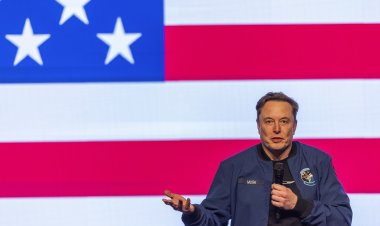"Inclusive Innovation in China's Sci-Tech Celebrated Amid Two Sessions"
The inclusive innovation in China's science and technology sector has garnered widespread praise during the Two Sessions event.

As the annual two sessions approach, there is considerable excitement surrounding China's advancements in technology, which are unfolding at a remarkable pace. With the commencement of the third session of the 14th National People's Congress and the third session of the Chinese People's Political Consultative Conference National Committee, more insights are emerging on how this wave of innovation relates to comprehensive progress, benefiting not only China but the global community.
The recognition of DeepSeek's AI reasoning model has been accompanied by the breaking of global box office records by the Chinese film "Ne Zha 2," showcasing China’s animation talent. Additionally, cutting-edge humanoid robots from Unitree Robotics gained widespread attention at the China Media Group Spring Festival gala, highlighting Hangzhou's role as a fertile ground for next-gen tech startups.
While such significant milestones might seem sufficient for a successful year, the reality is that China's momentum in innovation is gaining strength, marking a notable evolution in its technological landscape.
One of the most remarkable advancements is in quantum computing, where Chinese scientists have introduced a 105-qubit superconducting quantum computer prototype known as Zuchongzhi 3. According to its developers, it performs certain tasks at speeds that are a quadrillion times faster than the world's leading supercomputer and a million times quicker than Google's latest known results.
Following closely behind DeepSeek’s innovations, Zuchongzhi 3 emerged only a week after Microsoft unveiled its Majorana 1 quantum chip, reflecting a competitive landscape in technological advancements. This indicates that China is steadily matching, and in some areas surpassing, US innovations. Notably, unlike the trend of protectionism seen in the United States, China's progress demonstrates an open and inclusive framework.
While the US has imposed restrictions on high-tech exports to curb China's AI advancements, China has opted for a collaborative approach, sharing its innovations globally. Lou Qinjian, spokesperson for the third session of the 14th National People's Congress, underscored this sentiment during a pre-session press briefing in Beijing. In response to a query about DeepSeek, he stated, "DeepSeek follows an open source technological path. Such an open source approach has facilitated the wider application of AI technologies worldwide and contributed to China's wisdom to the world. Through DeepSeek one can see China's innovative and inclusive approach in sci-tech development."
DeepSeek is just one example of a broader trend promoting the inclusive adoption of groundbreaking technologies. The systematic push for new productive forces across various industries has even extended to agriculture, highlighted in the 'No.1 central document' of 2025 released on February 23. The successful combination of AI, drones, robotics, and genetics in farming could serve as a model for multiple nations, especially those in the Global South.
At the CPPCC National Committee session, member Zhao Hong, Chief Physician of the Cancer Institute and Hospitals, CAMS, addressed innovation in the pharmaceutical field. "A recent headline is about an unknown enterprise in China beating the most popular drug in the world in beating cancer. It's one example showing how more therapies from China are exported overseas. We are catching up with the others and we gradually innovate to lead the way," he mentioned. He was referring to Ivonescimab, developed by the Chinese biotech firm Akeso, which outperformed Merck's leading cancer treatment, Keytruda, in trials, according to CNN. Such successes could have significant global implications.
In the realm of space exploration, China continues to adopt an inclusive approach. Beyond the milestone of maintaining a functioning space station, China is making arrangements to allow astronauts from developing nations to travel aboard the Tiangong space station, having recently signed an agreement to facilitate this.
There is also a focus on acknowledging achievements regardless of their origin. The Chinese Academy of Sciences and the Chinese Academy of Engineering recently released lists of the top 10 global and Chinese sci-tech accomplishments of 2024.
The notion that innovations in science and technology should harmonize national goals with global inclusivity presents a powerful opportunity for meaningful social change across borders. As the world's second-largest economy, China's growing expertise and ambition in undertaking large-scale projects hold promise for widespread progress.
Alejandro Jose Martinez for TROIB News
Discover more Science and Technology news updates in TROIB Sci-Tech












